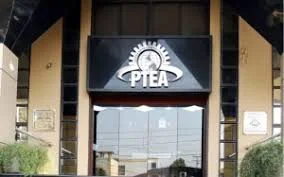- Web
- Feb 05, 2026
PTEA advocates for comprehensive trade reforms to bolster textile exports
-

- Web Desk Karachi
- Mar 05, 2025

ISLAMABAD: The Pakistan Textile Exporters Association (PTEA) has formally requested a decade-long trade policy, the suspension of the Export Development Surcharge (EDS) collection until current funds are depleted by 75 percent, a five-year freeze on energy prices, and the removal of superfluous protections for domestic polyester fibre manufacturers.
These appeals were articulated as part of the PTEA’s proposals for the budget of 2025-26, which is currently under preparation by the Finance Ministry and the Federal Board of Revenue (FBR), reported the Business Recorder.
In regard to the rationalisation of advance tax on exports, it has been noted that proceeds from exports are simultaneously subjected to deductions under both Section 154 and Section 147.
The advance tax of 1 percent collected by banks against export proceeds is categorised as a minimum tax rather than a final tax. Moreover, an additional advance tax of 1 percent has been imposed through the recent inclusion of sub-section (6C) in Section 147.
Conversely, under clause (45A) of Part-IV of the Second Schedule of the Income Tax Ordinance, 2001, local supplies are subjected to a 1 percent advance tax on textile goods and a 0.5 percent tax for yarn traders. The treatment directed toward exporters is perceived as discriminatory and contrary to the principles of equity and natural justice.
Sohail Pasha has been elected unopposed as the chairman of the PTEA.
In its proposals, the PTEA has advocated a reduction in the advance tax on export proceeds to 1 percent to alleviate the financial burden on exporters; the restoration of the Final Tax Regime for exporters; the abolition of the Super Tax; and the current advance tax deductions of 2 percent under Sections 153 and 147 result in an effective tax rate of 72.1 percent, compounded by additional super tax obligations of up to 10 percent for exporters in specific tiers.
The restoration of the Export Facilitation Scheme (EFS) for domestic trade has also been proposed, suggesting the reinstatement of EFS for domestic trade, with the consumption period reduced to one year; exclusion from this scheme of enterprises or commercial importers that do not contribute to exports; and the zero-rating of utility bills, including electricity and gas, under this scheme, given that exporters generating energy from thermal fuels and coal are already zero-rated.
The PTEA asserts that reinstating EFS with a reduced consumption period of one year would enhance liquidity and ensure that enterprises contributing to exports can reap its benefits, while commercial importers remain excluded.
This initiative is also anticipated to significantly aid in documenting the entire value chain.
Regarding the timely disbursement of refunds, the PTEA recommends processing and disbursing sales tax refunds within 72 hours in accordance with Rule 39F of the Sales Tax Rules 2006 to enhance liquidity for exporters; ensuring that duty drawback refunds are distributed without interruption; establishing a mechanism for processing deferred sales tax refunds electronically within 60 days from the generation of monthly RPO, eliminating manual processing while implementing safeguards and KPIs to prevent financial losses to the national exchequer; for transparency, compiling data on all outstanding refunds for both deferred sales tax and income tax credits in one accessible location, as significant outstanding refunds are currently subjected to manual processing and are not accurately reflected in the system.
Pakistan’s textile exports surge 6% in December amid global shifts
A strategic roadmap for refund disbursement should be established, with data shared with relevant stakeholders; creating a mechanism for processing income tax refunds electronically within 30 days in the true spirit of annual tax return filing; eradicating manual processing; allocating Rs27 billion for the clearance of pending refunds under DDT, TUF, and markup subsidies; fully digitalising the Input Output Coefficient Organization (IOCO) processing of analysis certificates; and permitting the issuance of tradable digital scripts for exporters’ input tax for a duration of one year, akin to practices employed in India, which would assist in resolving the capital constraints faced by exporters in scaling up their export activities.
The PTEA posits that a structured refund mechanism should allow refunds to be processed within 72 hours for sales tax, 60 days for deferred tax, and 30 days for income tax via automated processing to ensure both efficiency and transparency.
Additionally, the Export Finance Scheme (EFS) should be expanded, with its current ceiling through the EXIM Bank, which stands at Rs235 billion, being gradually increased to at least Rs1.2 trillion to meet capital requirements.
The PTEA contends that this expansion is critical to augmenting textile exports to $35 billion by 2023.
The Association further maintains that aligning duties with those of regional competitors such as Vietnam, China, and Turkey would significantly enhance the capacity of the value-added textile sector to compete on a global scale and attract synthetic garment exports.
Lastly, concerning the Sustainable Energy Tariff, the PTEA has proposed the announcement of a sustainable energy tariff for a minimum of five years to provide stability and predictability for the export sector; the rationalization of UFG charges on industrial consumers to 0.5 percent as opposed to the excessive rates currently being charged, which can reach up to 8 percent; the removal of transmission and distribution losses from B3 and B4 tariffs that apply to dedicated feeders or grid stations, as technically all units are billed under both tariffs—a major inconsistency in the current tariff structure; the elimination of cross-subsidies in electricity tariffs, which cost the industrial sector Rs125 billion; the elimination of cross-subsidies in gas tariffs, which total Rs150 billion; prioritizing the implementation of the Weighted Average Cost of Gas (WACOG) nationwide.




